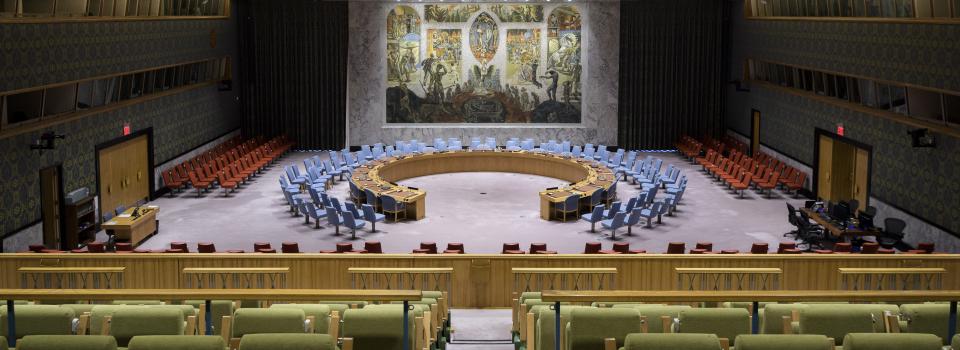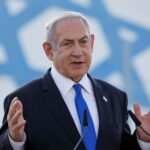- Following US abstention, a UN Security Council draft resolution calling for an immediate ceasefire between Gaza and Israel was approved.
- US Ambassador to the UN Linda Thomas-Greenfield expressed the US’s inability to fully support all aspects of the resolution.
- Heightened tensions emerge as Israel mulls potential military action in Gaza’s Rafah amid discussions of a prisoner-hostage arrangement with Hamas.
The United Nations has issued a call for a ceasefire in Gaza, marking a significant first. Following the resolution’s approval in the Security Council, the United States chose to abstain from voting. After months of deadlock, the Security Council has finally passed a resolution urging an immediate ceasefire in Gaza.
The document garnered 14 votes in favor, with the US abstention. It “calls for an immediate ceasefire during Ramadan, to be respected by all parties, leading to a lasting and sustainable ceasefire, and the immediate and unconditional release of all hostages, as well as ensuring humanitarian access to address their medical and humanitarian needs.” The adoption of the resolution was met with prolonged applause.
Before the vote, Russia proposed an amendment, suggesting replacing “lasting” with “permanent” in the sentence calling for “an immediate ceasefire during the month of Ramadan, to be respected by all parties, leading to a lasting and sustainable ceasefire.” Although the term was replaced at the eleventh hour, Russian Ambassador Vassily Nebenzia claimed that “it dilutes the text and leaves room for interpretation, potentially allowing Israel to resume military operations at any time.” Despite the rejected request, Moscow still voted in favor of the resolution.
Secretary-General Antonio Guterres commented on the Security Council’s approval of the Gaza truce draft, stating, “The UN Security Council has just passed a long-awaited resolution on Gaza, calling for an immediate ceasefire and the release of all hostages. This resolution must be implemented; failure would be unforgivable.”
Regarding the US abstention, National Security Council spokesperson John Kirby emphasized that it “does not alter our policy,” stressing that Washington “has consistently demanded the release of hostages by Hamas as a precondition for the ceasefire.”
“We are very disappointed,” Kirby expressed, addressing Benjamin Netanyahu’s decision to cancel the Israeli delegation’s trip to Washington following the US abstention at the UN. Netanyahu’s office cited the US vote as “a significant departure from the consistent US stance since the start of the conflict,” claiming that it undermines the efforts to free hostages by giving Hamas hope that international pressure could secure a ceasefire without the release of hostages.
US Ambassador to the UN Linda Thomas-Greenfield urged Hamas to release the hostages in response to the UN Security Council’s ceasefire call for action in Gaza, emphasizing, “We must exert pressure on Hamas; the ceasefire can commence immediately with the release of the first hostage. This is the only path.”
France advocated for a “permanent ceasefire” in Gaza post-Ramadan. Paris’ ambassador to the UN, Nicolas de Riviere, made this statement following the adoption of the Security Council resolution urging a truce during Ramadan.
In Gaza, Foreign Minister Antonio Tajani expressed hope for a ceasefire facilitating the release of Israeli hostages and delivering humanitarian aid to the Palestinian civilian population. Tajani welcomed the UN resolution on the ceasefire as a promising first step towards progress and peace, hoping for swift negotiations leading to the hostages’ release.
Reports indicate that at least eight rockets were launched from the Gaza Strip towards Ashdod. The army confirmed the incident, stating that the Iron Dome defense system intercepted two out of four rockets, while the rest landed in uninhabited areas, causing no reported damage or casualties. Hamas claimed responsibility for the launch. It marked the first such incident since January, targeting the coastal city near Gaza.
A high-level Israeli delegation arrived in Cairo via a private plane from Tel Aviv’s Ben Gurion Airport for further negotiations aimed at reaching a ceasefire agreement and facilitating an exchange between Israeli hostages and Palestinian prisoners. Airport sources disclosed this information, noting that the delegation was received by senior Egyptian intelligence officials and escorted to the talks’ undisclosed location.
UN Secretary-General Antonio Guterres highlighted a growing international consensus urging Israel to agree to a ceasefire in Gaza and refrain from entering Rafah in the southern part of the Strip. He emphasized this during a press conference in Jordan, stating that the international community, including the United States, the European Union, and the Muslim world, was increasingly united in conveying to Israel the necessity of a ceasefire, warning against the potential humanitarian catastrophe of a ground invasion of Rafah.
Hamas dismissed Israel’s portrayal of an imminent agreement on the hostages’ release and a Gaza truce, indicating that negotiations were not as advanced as Israel claimed. According to sources within Hamas cited by Haaretz, the delegation negotiating in Doha relayed this message to Gaza’s leader, Yahya Sinwar, accusing Israel of prolonging the offensive, including in Rafah, as part of its strategy. Additionally, Hamas expressed frustration that the events in Jerusalem during Ramadan did not lead to increased pressure on Israel, according to an Arab source cited by the same newspaper.
The UN resolution has drawn criticism for several key reasons. Critics argue that while the resolution is a step in the right direction, it falls short of addressing the full scope of the humanitarian crisis and fails to ensure equitable conditions for both parties involved.
Firstly, the timeline outlined in the resolution, set at just 15 days, is deemed insufficient by many to adequately address the magnitude of the humanitarian catastrophe unfolding in Gaza. The region has been ravaged by violence and suffering for an extended period, and a mere two-week ceasefire may not provide enough time to deliver essential aid, rebuild infrastructure, and address the long-term needs of the civilian population.
Secondly, a significant concern raised by critics is the conditional nature of the ceasefire, particularly regarding the release of hostages. While the resolution stipulates that Hamas must release all hostages immediately and unconditionally, it fails to impose a similar requirement on Israel to release the thousands of Palestinian detainees currently held in Israeli prisons. This lack of symmetry in the ceasefire conditions raises questions about fairness and equity in the peace process.
Some observers argue that conditioning the ceasefire on unilateral actions by Hamas, without requiring reciprocal gestures from Israel, could undermine the credibility and effectiveness of the resolution.



